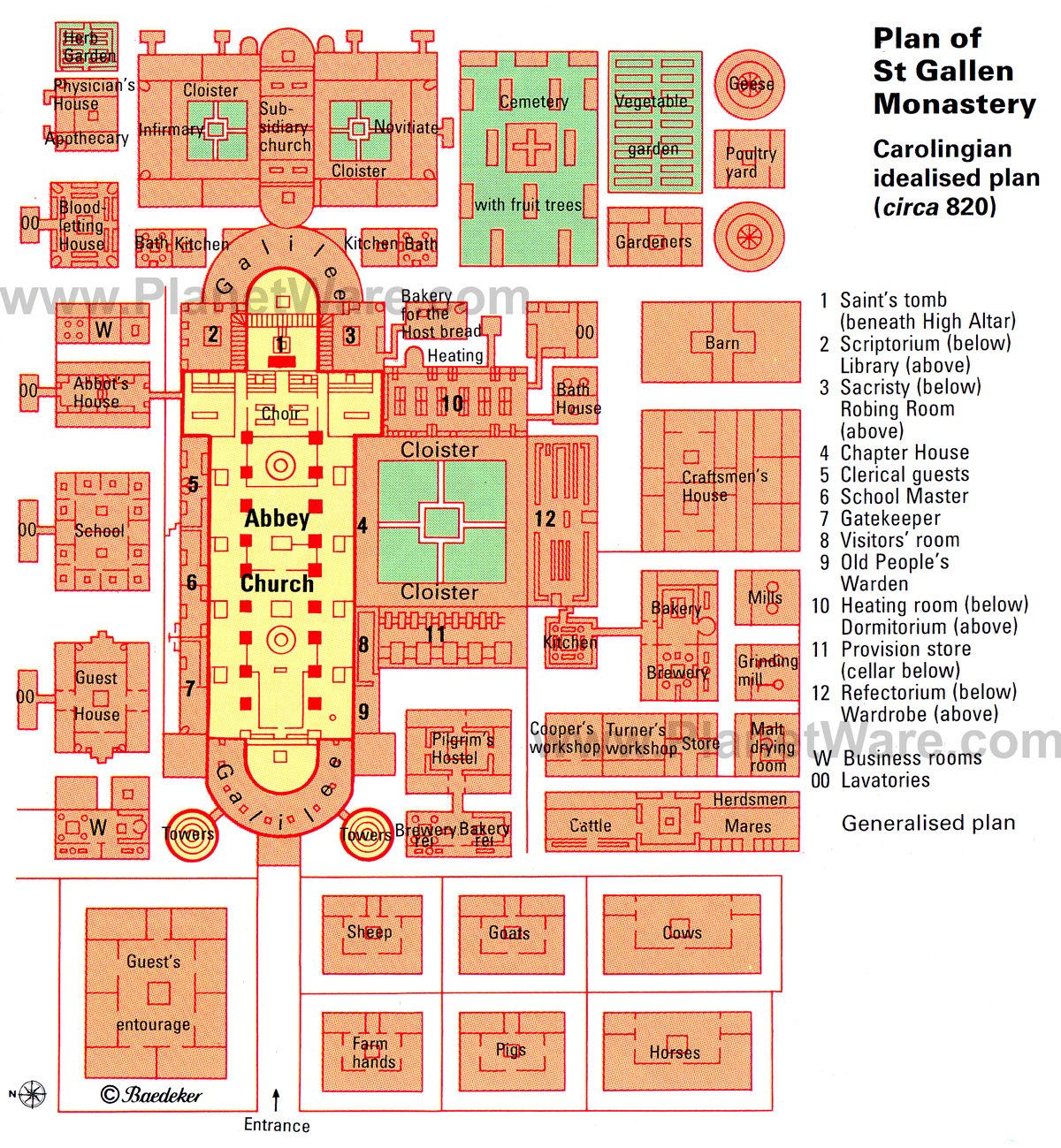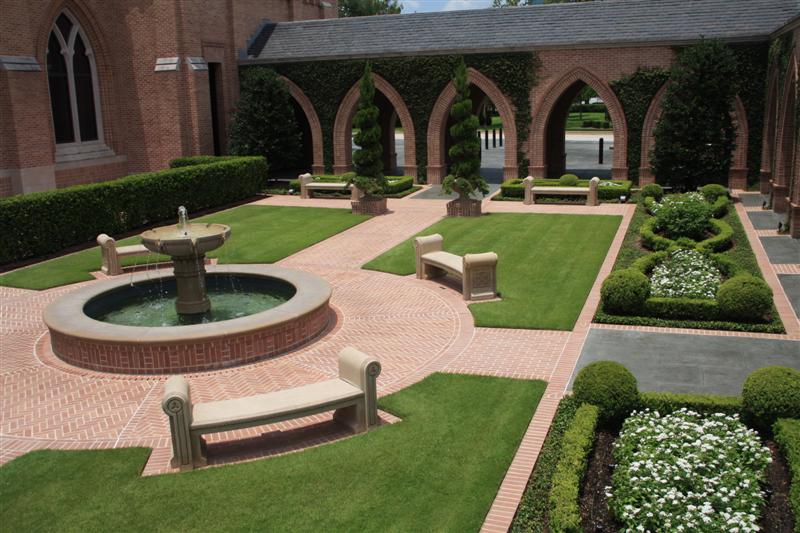 |
| Plan of Abbey at St. Gall |
Productive
gardens are intrinsic to all cultures. They are the common garden you would see at someone’s home. Productive gardens are used to grow vegetables,
fruit, herbs, and plants. In Europe, Monastic gardens were an example of these
productive, utilitarian gardens. They were self-sufficient gardens that were
used to grow vegetables and herbs for food for the monks. These
gardens were often found in medieval time, with an example being the Plan of
Abbey at St. Gall in Switzerland.
 |
| Example of a Monastic garden |
 |
| Example of Garden in Eden |
Religion was
also very important to European culture. Church was fundamental of everyone’s
life in the dark ages so gardens were created with religion in mind. Many
gardens had statues of gods and goddesses and were a place for religious
expression and worship. (Example: the Garden in Eden) Cloister gardens
were also monastic, practical gardens but were made with a religious meaning.
They were often enclosed and were a place of silence, study, and meditation.
 |
| Example of Cloister garden |
| Example of an orchard |
Royal/noble
gardens were also very intrinsic to European culture as these gardens were
based on wealth. Religious and productive gardens were too dull for the royals. They wanted a fun, entertaining, or relaxing garden instead. Some types of
royal gardens were orchards, parks, vineyards, and herbers. They were often
enclosed for protection, and had a formal structure with water features,
animals, seats, vines… etc to show wealth.
According to a history of European garden website I found, gardens are like museums, they cannot be copied or altered and they are a representation of the time period (link is below if want to read more). Production, religion, and royalty are the main reasons why gardens have been an intrinsic part of European culture.
Sources:
http://cmsen.eghn.org/et.html - website
http://www.aspigroup.com/properties_comm_sunbasin/CommercialSunBasin3.JPG -picture
http://nortonpriory.org/uploads/images/herb%20garden%20medieval%20reconstruction.jpg -picture
http://www.planetware.com/i/map/CH/plan-of-st-gallen-monastery-map.jpg -picture
http://www.prlog.org/11662841-cloister-garden-image.jpg -picture
http://i.dailymail.co.uk/i/pix/2009/02/27/article-0-03B1F305000005DC-903_634x440.jpg -picture
No comments:
Post a Comment